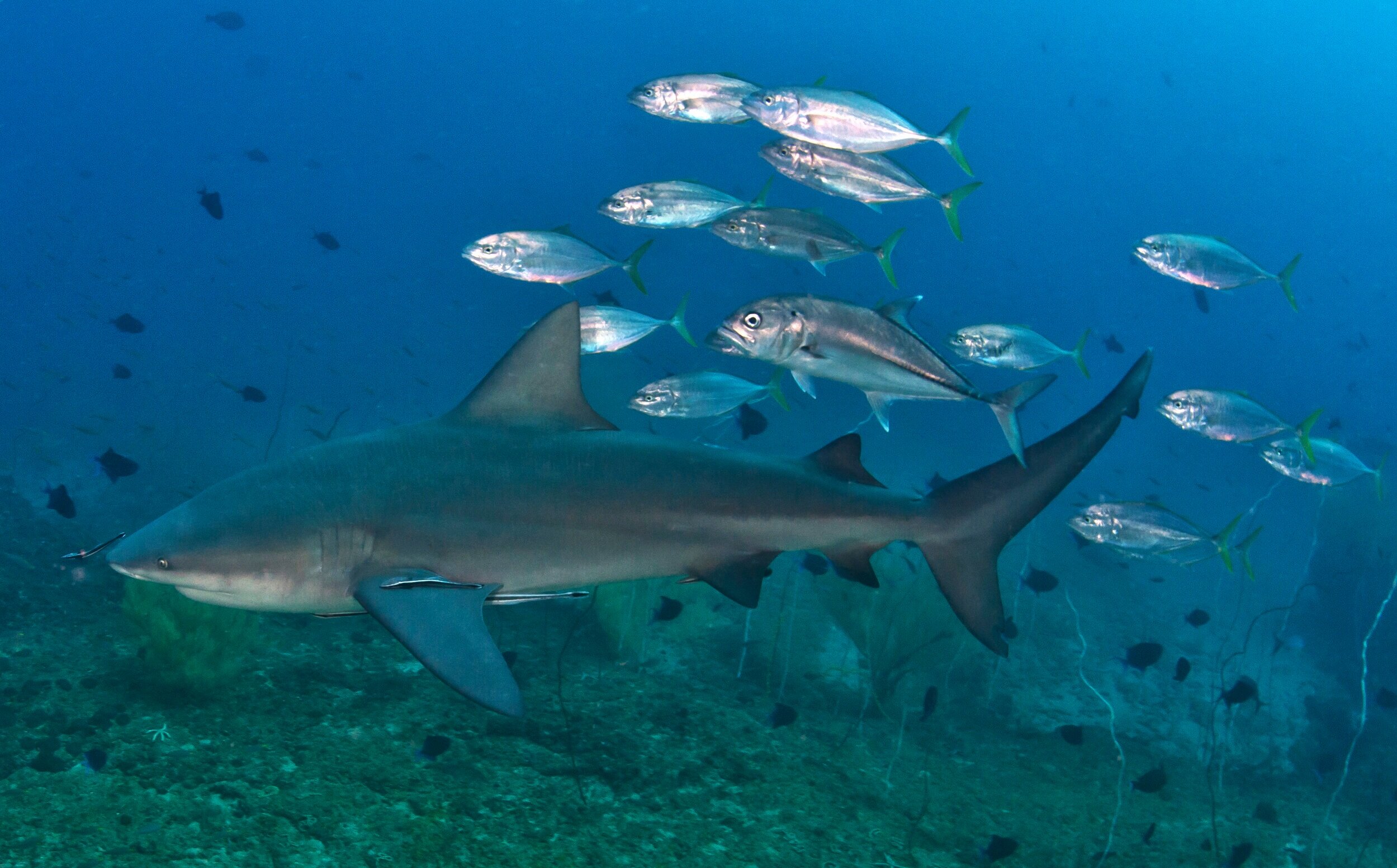
Mozambique Projects.
Bull Sharks
What’s this project about?
Bull sharks are among the top predators inhabiting the Mozambican coastline, playing a vital role in marine ecosystems. Fisheries assessments have revealed a drastic increase in catch rates in recent years, indicating the need for swift and effective management action.
This project uses a multi-technique approach to investigate the fine- and broad-scale movements and connectivity of bull sharks (also known as Zambezi sharks), addressing key knowledge gaps for this important coastal predator in southern Africa.
Key successes to date
Numerous aggregation sites for bull sharks have been identified throughout southern Mozambique, positioning our team to conduct focused research on this species.
Our team had collected observational sightings data from some of these sites for almost a decade before we began more formal work on the species in the province.
Deployed 11 internal acoustic tags and 3 satellite tags (miniPAT) on bull sharks in Mozambique
Collected fin clips and muscle tissue samples from tagged sharks for genetic and stable isotope analyses


Project Overview.
The bull shark (Carcharhinus leucas) is an important top predator species in marine ecosystems along the eastern African coastline. Its physiological adaptations allow this euryhaline shark species to live in marine, brackish and freshwater environments. As a large-bodied and mobile predator it likely plays a vital role in the functioning of the different aquatic ecosystems through which it moves.
Bull Shark Habitats
Estuaries, mangroves, and rivers represent critical nursery habitats for bull sharks. Female bull sharks have shown strong philopatric behavior, returning to their natal sites. Recent studies in southern Mozambique have shown that bull sharks remain resident in marine reef systems, but are also capable of long-distance return migrations of hundreds of kilometers. One satellite-tagged individual swam more than 2000 km from the Breede River in South Africa to the Bazaruto Archipelago in Mozambique.
Threats to Bull Sharks in Mozambique
Fisheries assessments have revealed that catches of sharks in Mozambique have increased by up to 220% in recent years. Bull sharks are one of the most commonly landed species in some areas of Mozambique, comprising up to 17.3% of total shark catches. Long-distance migrations and movements between marine and freshwater environments result in these sharks being especially vulnerable to capture in seine net and gillnet fisheries. Moreover, bull sharks are particularly susceptible to habitat degradation and pollution due to their reliance on sensitive habitats, such as estuaries, mangroves and shallow bays. Decreases in catches, such as those recorded in shark nets in South Africa, suggest localized depletions of bull shark populations in some areas, and highlight the species’ vulnerability to exploitation.
Bull Sharks & People
Frequent interactions between humans and bull sharks in coastal habitats have resulted in numerous fatalities in Mozambique. Resentment towards the species, and active persecution in some communities, poses an additional challenge for the conservation and management of bull sharks. Meanwhile, a lack of data on the species’ distribution, habitat use and population structure makes it difficult for scientists and managers to adequately assess and address other potential threats to bull sharks in the country.
Objectives.
Our researchers and collaborating partners are coordinating research efforts in several locations in Mozambique to address key knowledge gaps in the ecology and biology of bull sharks in this region. We are using a range of methodologies to investigate bull shark movement ecology, habitat use, genetic connectivity and trophic position.
The main research objectives are to investigate regional and transboundary movements of bull sharks, and to understand fine-scale movement patterns and habitat use of these important coastal predators. Secondly, we seek to determine the connectivity of bull shark population(s) in Southern Africa, and to characterize and help resolve the conservation conflict between local communities and these predators.
Bull shark tagging © Uli Kunz
Project Leaders
Lukas Mueller, MSc
Research Scientist
Lukas’ PhD research aims to reveal bull shark movement patterns within and between marine protected areas in Mozambique, to provide managing entities with key insights for effective conservation strategies. A particular focus is the Bazaruto Seascape region.
Dr Andrea Marshall
Principal Scientist
Andrea has been conducting research on marine megafauna in Mozambique for 20 years, with an emphasis on sharks and rays. As a conservation biologist she focuses predominantly on research questions related to the effective management and conservation of threatened species.






